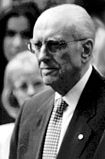1974 Greek legislative election
| |||||||||||||||||||||||||||||||||||||||||||||||||||||||||||||||||
All 300 seats to the Greek Parliament 151 seats were needed for a majority | |||||||||||||||||||||||||||||||||||||||||||||||||||||||||||||||||
|---|---|---|---|---|---|---|---|---|---|---|---|---|---|---|---|---|---|---|---|---|---|---|---|---|---|---|---|---|---|---|---|---|---|---|---|---|---|---|---|---|---|---|---|---|---|---|---|---|---|---|---|---|---|---|---|---|---|---|---|---|---|---|---|---|---|
| |||||||||||||||||||||||||||||||||||||||||||||||||||||||||||||||||
| |||||||||||||||||||||||||||||||||||||||||||||||||||||||||||||||||
Parliamentary elections were held in Greece on 17 November 1974.[1] They were the first after the end of the Greek military junta of 1967–1974 and took place during the metapolitefsi era. The winner was Konstantinos Karamanlis and his newly formed conservative party, ND (New Democracy, Νέα Δημοκρατία). Karamanlis had already formed a government of national unity just after the fall of the dictatorship. The second biggest party was the centrist Center Union - New Forces (Ένωσις Κέντρου-Νέες Δυνάμεις). Third power in the Parliament became the newly formed PASOK (Panhellenic Socialist Movement, Πανελλήνιο Σοσιαλιστικό Κίνημα), a radical socialist party led by Andreas Papandreou, son of the former prime minister Georgios Papandreou.
Results[]
| Party | Votes | % | Seats |
|---|---|---|---|
| New Democracy (ND) | 2,669,133 | 54.4 | 220 |
| Centre Union – New Forces (EK-ND) | 1,002,559 | 20.4 | 60 |
| Panhellenic Socialist Movement (PASOK) | 666,413 | 13.6 | 12 |
| United Left (EA) | 464,787 | 9.5 | 8 |
| National Democratic Union (EDE) | 52,768 | 1.1 | 0 |
| Democratic Centre Union (DEK) | 8,509 | 0.2 | 0 |
| Revolutionary Communist Movement of Greece (EKKE) | 1,599 | 0.0 | 0 |
| Coalition -Socialist Party of Greece (FDE-SKE) | 975 | 0.0 | 0 |
| List of Independents and independents | 42,291 | 0.9 | 0 |
| Invalid/blank votes | 54,584 | – | – |
| Total | 4,963,558 | 100 | 300 |
| Registered voters/turnout | 6,241,066 | 79.5 | – |
| Source: Nohlen & Stöver | |||

Aftermath[]
The priorities of the Karamanlis' government were:
- The adoption of a new Constitution
- The abolition of Monarchy after a free referendum
- The submission of a new application for Greece's accession to the European Community.
The new government decided to hold a referendum on retaining the republic. It was held on 8 December 1974.
In 1975 Konstantinos Tsatsos, a close friend of Karamanlis, was elected President of the Republic by the Greek Parliament.
References[]
- ^ Dieter Nohlen & Philip Stöver (2010) Elections in Europe: A data handbook, p830 ISBN 978-3-8329-5609-7
Further reading[]
- Tridimas, George (2010). "Referendum and the choice between monarchy and republic in Greece". Constitutional Political Economy. 21 (2): 119–144. doi:10.1007/s10602-009-9078-4. S2CID 154282086.
- Parliamentary elections in Greece
- 1970s in Greek politics
- 1974 elections in Europe
- 1974 elections in Greece
- November 1974 events in Europe



